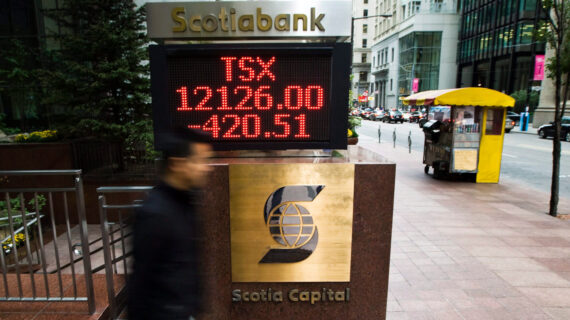Is Pierre Poilievre a polarizing or unifying figure in the Conservative Party? Is he both?
Over the weekend, conservative politicians, pundits, and operators gathered to attend the annual Calgary Stampede. Among them were the Conservative leadership race’s top remaining contenders, Poilievre and Jean Charest.
The staunchly conservative Poilievre was warmly received by crowds at several events he attended in his Calgary hometown. Meanwhile, according to the Calgary Herald’s Don Braid, Charest was greeted with jeers and boos while appearing at a Conservative Party-hosted barbeque.
Charest is considered a more moderate candidate than Poilievre, and he has not shied away from courting the supporters of centrist Patrick Brown, who was disqualified from the race last week.
Poilievre has been called the frontrunner since entering the race in February, with Charest considered his nearest competitor. Polling data suggests Charest has remained far less popular than Poilievre among Conservative supporters throughout the contest.
Poilievre and Charest’s campaigns have engaged in an ongoing rhetorical battle that has been portrayed as a battle for the party’s soul in the media.
Commenting on the barbeque and Poilievre’s likely victory in the race, Braid wrote, “the only Conservative party he’ll unite is one either abandoned by or purged of moderates.”
Just last Thursday, the Globe & Mail’s Lawrence Martin described Poilievre as “Pierre the polarizer”.
So just how divisive is Poilievre?
Hub contributor Karamveer Lalh is a former staffer for both the federal Conservatives and Alberta’s provincial United Conservative Party. He says that moderates who often criticize Poilievre tend to be overly engaged online.
“They see a lot of these proposals and comments that Pierre makes, and they read too much into them,” opined Lalh, who says Poilievre’s political positions have been fairly consistent. “On social issues, he’s moderate, on economic ones he’s libertarian. Generally speaking, your moderate members of the party and moderate conservatives, sort of like that approach.”
Lalh, an Edmonton-based lawyer, says conservative-minded people he interacts with like Poilievre’s “prosecutorial” style in the House of Commons, and see him as someone who asks good questions and holds the governing Liberals to account.
“I think a lot of moderates who are frustrated with Justin Trudeau will ultimately vote for Pierre if their motivation is truly that they’re frustrated with Justin Trudeau,” says Lalh.
Polling suggests that while Poilievre may polarize some party members, he is also far more widely liked than candidates in the last leadership contest.
On July 7, Mainstreet Research released a poll, commissioned by iPolitics and conducted from May 21 to June 24 among Conservative Party members, regarding the leadership contest’s candidates. Poilievre was the first choice for 53 percent of respondents, 20 percent chose Charest, 12 percent chose Leslyn Lewis, while the other candidates polled in single digits. Of all members polled, 83 percent declared they were certain or very likely to vote for their first choice.
By comparison during the 2020 leadership race, Mainstreet’s last poll of Conservative members before the vote showed 41 percent of respondents picking then-perceived frontrunner Peter MacKay as their first choice. Eventual winner Erin O’Toole was the first choice for 32 percent of polled members.
Poilievre has enjoyed a far more comfortable lead among supporters throughout the 2022 leadership race in multiple surveys. A May Abacus Data poll showed that 42 percent of Conservative supporters held a positive view of Poilievre, while Charest once again came in second with 26 percent. The same poll showed that 14 percent of supporters held a negative view of Poilievre, while 25 percent held a negative view of Charest.
An Abacus poll during the previous leadership race in May 2020, revealed that 39 percent of Conservative voters had a positive view of MacKay, while 9 percent held a negative view. For O’Toole, 28 percent viewed him positively, while 6 percent had a negative view.
If taken as indicators of the base’s mood, Poilievre as a candidate enjoys far higher levels of approval from party members and supporters than his predecessors in the last leadership contest, while Charest is disliked by far wider margins than the 2020 candidates.
Mainstreet’s 2022 poll of Conservative members reported that 45 percent would never vote for Charest, while 16 percent would not vote for Poilievre. Among Poilievre supporters, 66 percent reported they would never vote for Charest, while 54 percent of Charest’s supporters would never vote for Poilievre.
In a piece published in the Hub on Monday, contributor Rahim Mohamed declared that based on the numbers of new members signed up by Poilievre’s campaign—allegedly 312,000—and his support from pre-existing members, his victory in the race is a matter of arithmetic. Mohamed credits Poilievre’s success with firmly sticking by his populist message when Canadians are frustrated with their declining economic fortunes.
Poilievre has criticized the Bank of Canada for failing to curb inflation, the Liberals for insufficiently addressing the housing crisis, and recently, Rogers Communications for last week’s service outage that left millions of Canadians without internet or cellular service.
Furthermore, Mohamed states that Poilievre’s campaign did well to reach out to the nascent freedom movement that emerged in Canada over the last year, and for stating that he is running to make Canadians“the freest people on Earth”.
“This message has been catnip to the Conservative Party’s base, who’ve united behind Poilievre with a uniformity not seen since Stephen Harper’s departure from politics,” wrote Mohamed.
Following up over email, Mohamed agrees the Poilievre campaign’s tone has alienated moderates by verbally attacking the Charest and Brown campaigns, but tapped into a larger pool of non-voters by focusing on issues like affordability.
While describing himself as a moderate conservative, Mohamed states moderates have always been better-represented in elite circles like the Parliamentary Press Gallery than the general public. He points out that the old Progressive Conservatives, where many moderate Conservatives like Charest started their political careers, received only 12 percent of the vote in the last federal election they contested in 2000.
“Moderates likely account for a smaller proportion of the CPC membership than pundits commonly assume, which explains why we’re seeing such strong polling numbers for Poilievre,” says Mohamed, who says there is no reason to believe the moderates’ stock has grown since the 2000 election.
The Conservative leadership election is expected to take place in Ottawa on September 10.




